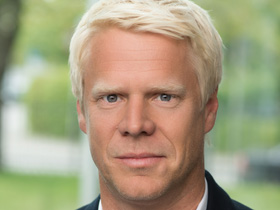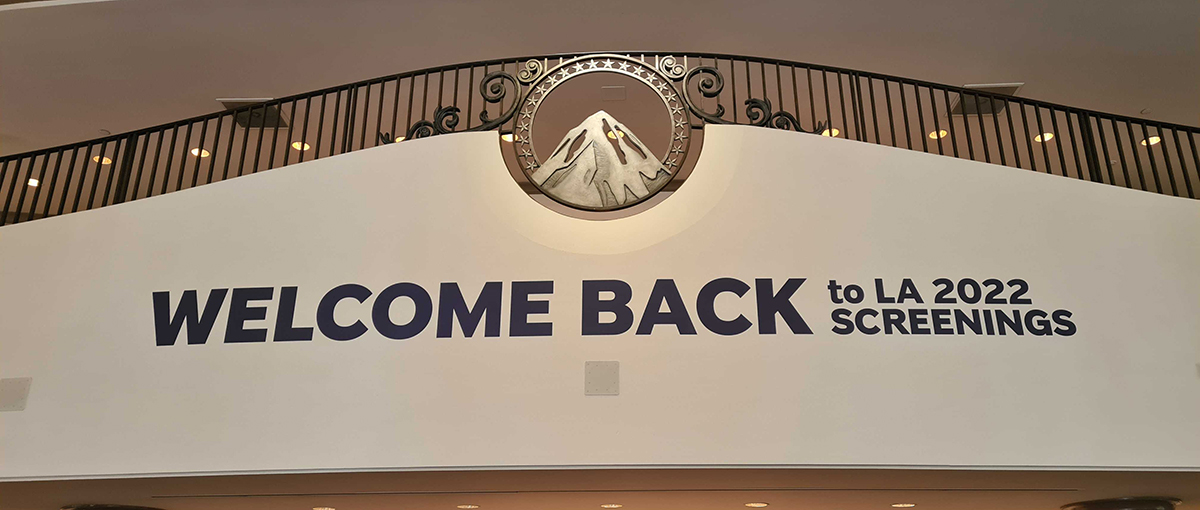Every year in May, those responsible for TV stations from all over the world make the pilgrimage to Los Angeles to see everything the US studios have to offer in terms of new productions within a week. After a two-year Corona break, it was time again this year for the first time – but in the run-up to the event, the question marks about the meaningfulness of the event were bigger than ever. Now that the majority of US corporations see their future in their own international streaming service, on which most of their own productions are also used internationally, it was unclear what else there would be for buyers to visit.
© IMAGO / Future Image
Oliver Berben, Deputy CEO at Constantin Film
-With the exception of Disney, which – as of today – relies solely on this self-exploitation and therefore called off the screenings completely, all production studios welcomed the guests, who, despite the uncertainties, came in large numbers. However, a considerable proportion of what they saw did not come from the USA at all, but from international activities, mostly in co-production with local production houses. “The biggest feature of this year’s screenings is the strong internationality of the series,” says Oliver Berben, stv. CEO of Constantin Film. “A lot of the shows come from different countries around the world.”
Simone Emmelius, who took part in the screenings for ZDF, strikes a similar note: “America is no longer the only hub of the world: Studios like Paramount and Sony have presented their international (co-)productions very confidently.” These included, for example, “Three Pine Trees”, “A Spy Among Friends” or “Without Sin”, but German productions such as “Munich Games” for Sky or “Ze Network” for RTL+ were also shown.

© ZDF / Jana Kay
Simone Emmelius heads the main ZDF feature film editorial team and is therefore also responsible for international fiction
-And these international productions did not act as filler to conceal the manageable range of US goods, but were actually among the things that attracted the most attention from buyers at many studios. This is also due to the fact that many US productions were a bit too tailored to the US market – for example when it comes to heroic “firefighters” in forest fires, the Wild West or country music. These “originally American materials” are “difficult to place for a German target audience,” says Simone Emmelius – and it shouldn’t look much different in other countries.
It also fits that Henrik Pabst from ProSiebenSat.1 named “The Lazarus Project”, a British Sky production by German director Marco Kreuzpaintner, as his highlight. The series is about an organization that has the ability to turn back time when the world is about to collapse in order to avert the catastrophe. Another top-selling show was Colin (From Accounts), an Australian romantic comedy about two people who become unintentionally attached when he snaps at a dog after she bares her breasts at him in passing. Paramount placed the charming series at the very beginning of its screenings – that alone was a remarkable statement.

© Red Arrow International
Henrik Pabst, Chief Content Officer der Seven.One Entertainment Group
-Whether such a series would have it easy in the linear program is another matter, but this applies to the majority of the productions shown. “It feels like there were a little more shows for streamers than for networks this year,” says Henrik Pabst from ProSiebenSat.1. The fact that on the US side it is mainly the productions for sale that are produced there for the free-to-air networks that explains another trend that Oliver Berben identified – namely that there were fewer comedy series and more crime and drama series. The US networks have successively reduced their share of comedy in recent years because this program color is working less and less well on US television – especially when it comes to time-sovereign use. Crime fiction, on the other hand, is what best appeals to the increasingly older audience that still watches linear television.
But even if it wasn’t necessarily the US productions that caused the most buzz among the international guests in LA: Hardly anyone would have regretted the trip to California – not just because the weather is still turning after the initial grey-on-grey typically sunny. “It was very good to see the entire industry in the same place,” says Henrik Pabst, Oliver Berben speaks of a “nice comeback”, Simone Emmelius sums up the event as “an important performance show for the industry and with its international high-ranking delegations is still happy used forum for exchange.”
Gone are the days when the US manufactured and the rest of the world came to shop. But the LA Screenings could have a future as a marketplace for international productions, as a meeting point for those responsible from all over the world. The opinion among the German representatives is not unanimous as to whether the screenings have a future in the long term – even if everyone wants a continuation. “It will largely depend on how the majors position themselves on the market beyond their own streaming platforms,” says Simone Emmelius. But after the recent decline in subscriptions at pioneer Netflix, it is by no means certain that it will continue to be seen as the sole future model. It was only then that many people realized how profitable the international sales market had been up until now.
–


